Key Information
Enrol Now
Course Information
- Know before you go - a guide to starting the sheep production cycle well
- Pregnancy and preparing the ewe for lambing
- Top tactics for successful lambing
- Top tips for good growth and lamb survival
.png)
Four individual FlockMaster sessions will be running throughout the year. Although designed to run as a four-part series, the sessions are also independent of one another to enable sheep keepers to dip into areas of interest if unable to attend the whole course. These sessions will run 10am – 5pm and will involve practical sessions at the Royal Veterinary College’s Boltons Park Farm with their sheep flock. Course notes will be provided. We would not recommend attending if you are pregnant or could be pregnant.
If you are under 18 and wish to attend please contact us at cpd@rvc.ac.uk
Why do this course
Who should do it? These sessions are aimed at sheep keepers looking to expand their knowledge and improve their sheep farming practices. We believe that this course is suitable for both commercial and small-scale sheep keepers, whether experienced or novice, providing you relevant and tailored sheep course to the participants on the day.
Pregnancy and preparing the ewe for lambing - Tuesday 16th December 2025
The aim of the second session in this series is to equip sheep keepers with knowledge and skills to prepare ewes adequately for lambing. This will be a day of practical sessions with sheep flock.
- Control of lameness - identification of causes of lameness, treatment, 5 point plan for control of footrot
- Grazing management - all grass wintering, use of brassicas, fodder beet and other cover crops
- Recap body condition scoring
- Scanning results & planning for parturition - investigation of barren rates, nutritional needs of pregnant ewes, metabolic profiling, vaccination of ewes prior to lambing, dealing with abortion
- Lambing accommodation - indoors vs outdoors, space, shelter, hygiene, feedspace, orphan areas
- Basic ration planning - practical chance to work out rations for ewes
Top tactics for successful lambing - Tuesday 24th February 2026
The aim of the third session in this series is to equip sheep keepers with knowledge and skills to prepare for a successful lambing time with regards to both ewe and lamb management from birth to eight weeks.
Key areas:
- Lambing practical- identifying ewes that require assistance, identifying malpresentations & correcting, recognising when a ewe needs a caesarean section
- Lamb care (colostrum, navels, tail-docking, castration, temperature, bedding, hygiene)- recognising the sick lamb, stomach tubing technique, rubber ring application technique, the need for castration & tail-docking?, navel dipping, vaccination, early life growth rate targets
- Flystrike control & Nematodirus control- what are these problems, how do we prevent them, how do we deal with them when they occur
- Grazing management- measuring grass, use of alternative forages
Top tips for good growth and lamb survival - Tuesday 19th May 2026
The aim of the fourth and final session in this series is to equip sheep keepers with knowledge and skills to ensure growth rates and lamb survival is maximised to get the best out of their lambs, both for replacement and selling.
Key areas:
- Lamb growth rates - targets, common causes of poor growth rates
- Trace element deficiencies - detection and correction
- Sustainable worm control - how do worms cause disease, understanding the worm lifecycle and epidemiology, detecting infection, playing the GAME, TSTs (growth rate & FAMACHA scoring), avoidance strategies, preventing anthelmintic resistance.
- Selecting sheep for slaughter - where are you going to sell your lambs?, identifying lambs that are ready for slaughter, minimising carcase condemnations
- Iceberg diseases - detection and control
Know before you go - a guide to starting the sheep production cycle well - July 2026
The aim of the first session in this series is to equip sheep keepers with knowledge and skills to optimise reproductive performance on their farm, and to structure their purchases of sheep so as to minimise the risk of disease introduction.
- Body condition scoring - including target BCS at different times of year, impact of body condition on production
- Grazing management - basics of grazing management as it affects reproduction
- Mating management - vaccination against abortion, flushing, ram:ewe ratio, synchronisation & breeding season advancement, raddle marks & scanning
- Ram MOT
- Selecting sheep for purchase - choosing the right sheep for your farm, where to source sheep from, identifying risk levels, “iceberg” diseases
- Quarantine - prevention of import of disease, correct quarantine procedure.
JP Crilly, MA VetMB CertAVP PGCertVetEd DipECSRHM MRCVS
Lecturer in Small Ruminant Health and Flock Management
Beth Reilly, BVetMed PGDipVCP PGCertVetEd FHEA MRCVS
Senior Farm Animal Teaching Fellow
The Royal Veterinary College

